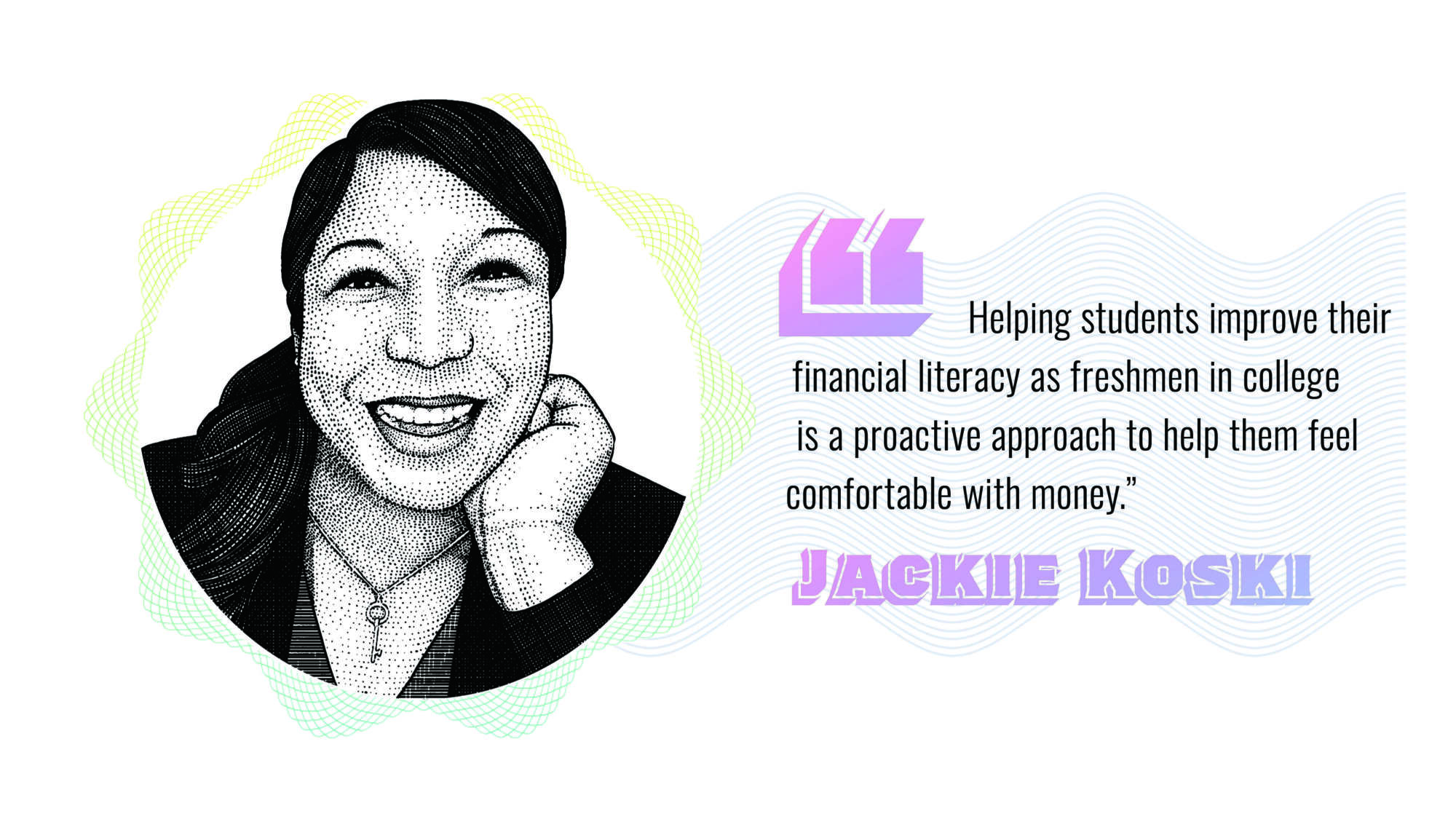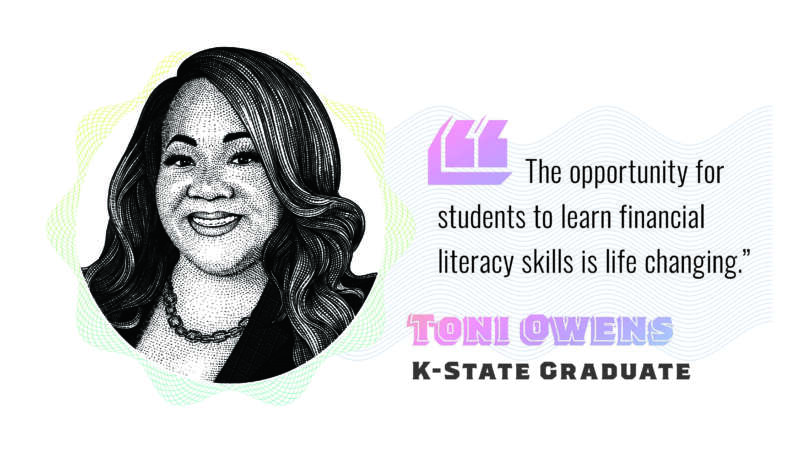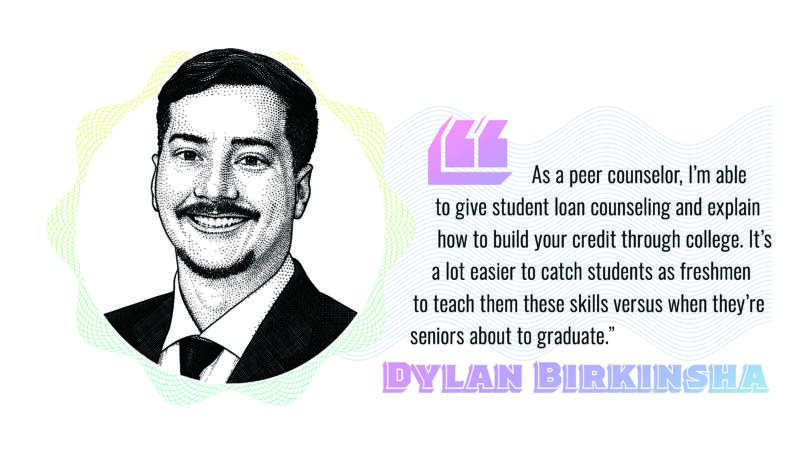Former Powercat Financial counselor has a vision: a financially literate world
Jackie Cummings Koski is nationally recognized for her financial planning prowess and positivity. As a K-State graduate and former Powercat Financial peer counselor, Jackie is fulfilling her dream of creating a financially literate society.
Why is financial literacy at a young age important?
I’ve always thought that financial education should start in high school or college. It creates the best path forward for most people. The vision K-State has for making financial wellness resources available for students is amazing. It puts them on a whole other level to be able to better manage the money they’re going to earn once they graduate, and it will even help while they’re in school.
Finances can be a tough personal subject for many. How did you make students feel more comfortable?
I came to K-State for my master’s degree because the program has a concentration on the emerging field of financial therapy — the interplay between psychology, relationships and money. This program is the first of its kind in understanding the emotional and behavioral side of money.
I always knew that a person’s experiences and their emotions are closely related to how they behave with money. Sometimes students would tell me something they thought they were doing wrong, like not saving enough money. But I’d help them focus on the positive — at least they were saving — and help them reframe a bit and look at things through a different lens.
As a Powercat Financial peer counselor, you mostly worked with graduate students. What topics were they most interested in learning about?
Graduate students are more likely to be married, have kids and be working a job while taking classes. There were also a lot of international students, so filing taxes is different for them. International students can‘t apply for financial aid, so that had to be reshaped. There were a lot of things I had to research to find answers for them, like taxes, financial assistance and getting a credit card as a non-citizen.
All of this turned around my thinking and helped me better empathize with their different experiences and needs. I embraced that, and I think they appreciated that I was a graduate student, too.
Why should donors invest in All In for Financial Futures?
Helping students improve their financial literacy as freshmen in college is a proactive approach to help them feel comfortable with money. It will put them ahead of the game and help prevent them from making mistakes.
Other universities look to Kansas State as a leader in this type of program, so we want to keep it as strong as possible. We want to grow this program because this knowledge is critical.



